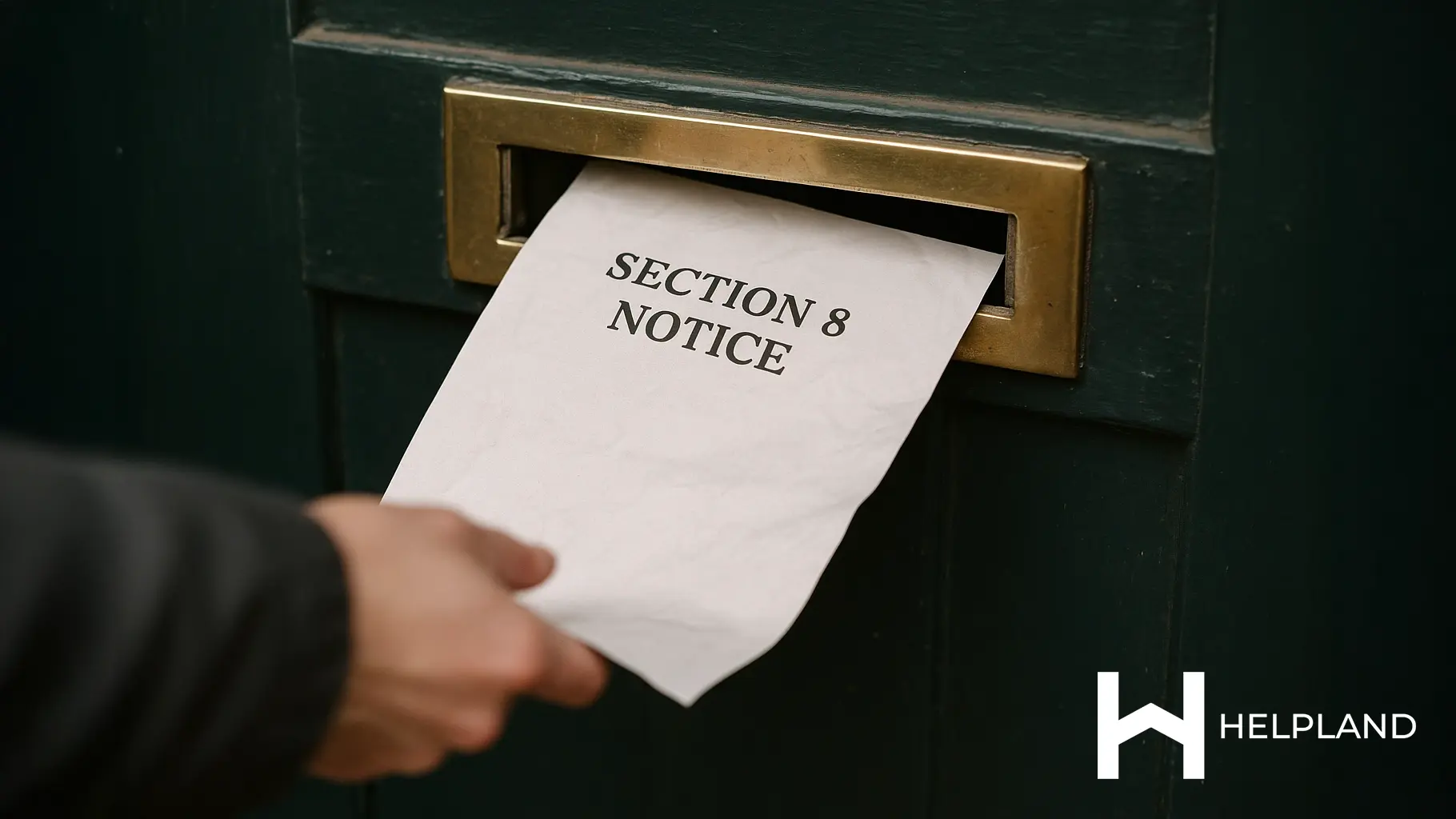Introduction - The End of Eviction Isn’t the End of Debt
You’ve finally regained possession after months of non-payment, but you’re still out thousands in rent arrears (and maybe court costs). Many landlords ask:
“Can I still get my money back now the tenant’s gone?”
The answer is often yes.
This guide (England only) sets out the practical routes to recover unpaid rent from a tenant after eviction: using the deposit, sending a Letter Before Action, issuing a money claim, tracing a vanished tenant, and enforcing a County Court Judgment (CCJ).
Helpland’s debt recovery team specialises in helping landlords turn judgments into real recovery.
Step 1 – Settle Up Using the Tenancy Deposit
Deposit Deductions
Landlords can claim arrears from the tenancy deposit if it was protected correctly.
ADR Process
Each scheme offers adjudication. Evidence like rent ledgers and tenancy agreements is key. Decisions are typically made within 28–60 days once all evidence is submitted.
Compliance Matters
You can only use the deposit if it was protected and prescribed information served within 30 days of receipt.
Helpland can prepare evidence bundles and manage the scheme process to maximise recovery.
Step 2 – Send a Formal Demand (Letter Before Action)
If arrears remain, the next step is a Letter Before Action (LBA):
- Sets out the debt, interest, and documents enclosed.
- Gives the debtor 30 days to respond (as required by the Pre-Action Protocol for Debt Claims).
- Must be posted to the last known address; email may also be used where appropriate.
Helpland drafts and issues compliant LBAs, creating a clear audit trail.
Step 3 – Issue a Money Claim For Rent Arrears
When no payment arrives, you can sue for the debt:
Track Allocation
- Small claims – up to £10,000.
- Fast track – £10,000–£25,000.
- Higher claims go to intermediate or multi-track.
How To File
Use GOV.UK’s “Make a money claim” service or submit Form N1.
Court Fee Example
For a £5,000 claim, the issue fee is £205 (Sept 2025).
Interest
Landlords can claim up to 8% simple interest per year on arrears under s.69 County Courts Act 1984 (unless the tenancy agreement specifies a lawful rate).
Check Your Order
Some possession orders already include a money judgment. If yours does, a separate claim isn’t needed.
Helpland ensures claims are drafted correctly with full evidence and interest calculations.
Step 4 – Trace the Ex-Tenant
Recovery is impossible if you can’t find the debtor:
- Tracing services can locate a new address and, in some cases, employer details.
- Lawful basis: Debt recovery usually relies on legitimate interests under UK GDPR, landlords should record a brief legitimate interest assessment.
Helpland’s Debt Tracing confirms live addresses and checks the debtor’s financial status.
Step 5 – Enforce the Judgment (Get Your Money)
A CCJ doesn’t enforce itself. You must choose the right method:
High Court vs County Court (Control of Goods)
- High Court Enforcement Officers (HCEOs): Can act on judgments over £600 (not CCA-regulated). Often faster and more effective.
- County Court Bailiffs: The standard alternative via a warrant of control.
Attachment of Earnings
Court orders deductions direct from the debtor’s wages.
Third-Party Debt Order
Freezes funds in a known bank account or owed by a third party.
Charging Order
Secures the debt against property the debtor owns.
Helpland handles transfer-up, instructs HCEOs, and manages other enforcement routes.
Additional Tips to Improve Recovery Chances
- Guarantors: If your tenancy had a guarantor, include them in the LBA and claim. Courts allow multiple defendants.
- Keep strong evidence: Tenancy agreement, rent ledger, possession order, and notices.
- Professional collectors: Consider HCEOs or debt collection partners for speed.
- Don’t delay: Landlords have 6 years from the due date of rent to issue a court claim (Limitation Act 1980).
Conclusion – Don’t Write Off Rent Arrears Without a Fight
Post-eviction arrears are not a lost cause. With the right steps, deposit, LBA, money claim, tracing, and enforcement, many landlords recover all or part of what they’re owed.
Helpland is one of only two NRLA-recommended suppliers, with 20+ years of award-winning expertise and high success rates.
Speak to Helpland’s Debt Recovery team today to plan the fastest route to repayment.
FAQ
Can I recover unpaid rent after eviction?
Yes. Options include deposit deductions, LBAs, money claims, and CCJ enforcement.
How do I claim through a deposit scheme?
Submit evidence (rent ledger, tenancy agreement) via the scheme. Decisions are typically made within 28–60 days.
What is a Letter Before Action?
It’s a formal debt demand. Landlords must give the tenant 30 days to respond before court action.
What enforcement methods exist for a CCJ?
High Court Enforcement, County Court Bailiffs, Attachment of Earnings Orders, Third-Party Debt Orders, and Charging Orders.
Note: This blog is England-only guidance, accurate to September 2025. It is not legal advice; landlords should seek tailored advice for individual cases.

.png)



